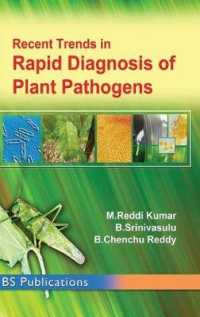Full Description
This book reproduces the texts of four lectures, followed by discussions, and two interviews with Lise Gauvin published in Introduction à une poétique du divers (1996); and also four further interviews from L'Imaginaire des langues (Lise Gauvin, 2010). It covers a wide range of topics but key recurring themes are creolization, language and langage, culture and identity, 'monolingualism', the 'Chaos-world' and the role of the writer. Migration and the various different kinds of migrants are also discussed, as is the difference between 'atavistic' and 'composite' communities, the art of translation, identity as a 'rhizome' rather than a single root, the Chaos-World and chaos theory, 'trace thought' as opposed to 'systematic thought', the relation between 'place' and the Whole-World, exoticism, utopias, a new definition of beauty as the realized quantity of differences, the status of literary genres and the possibility that literature as a whole will disappear. Four of the interviews (Chapters 6, 7, 8 and 9) relate to particular works that Glissant has published: Tout-monde, Le monde incrée, La Cohée du Lamentin, Une nouvelle région du monde. Many of these themes have been explored in his previous works, but here, because in all the chapters we see Glissant interacting with the questions and views of other people, they are presented in a particularly accessible form.
Contents
Key Signs and Key Things: An Introduction to Édouard Glissant's Essays
Preface (Charles Forsdick)
Creolizations in the Caribbean and the Americas
Languages and langages
Culture and Identity
The Chaos-world: towards an aesthetic of Relation
The Imagination of Languages
The Writer and the Breath of Place
Watching out for the World
Rethinking Utopia
On Beauty as Complicity
Movements of Languages and Territories of the Novel








